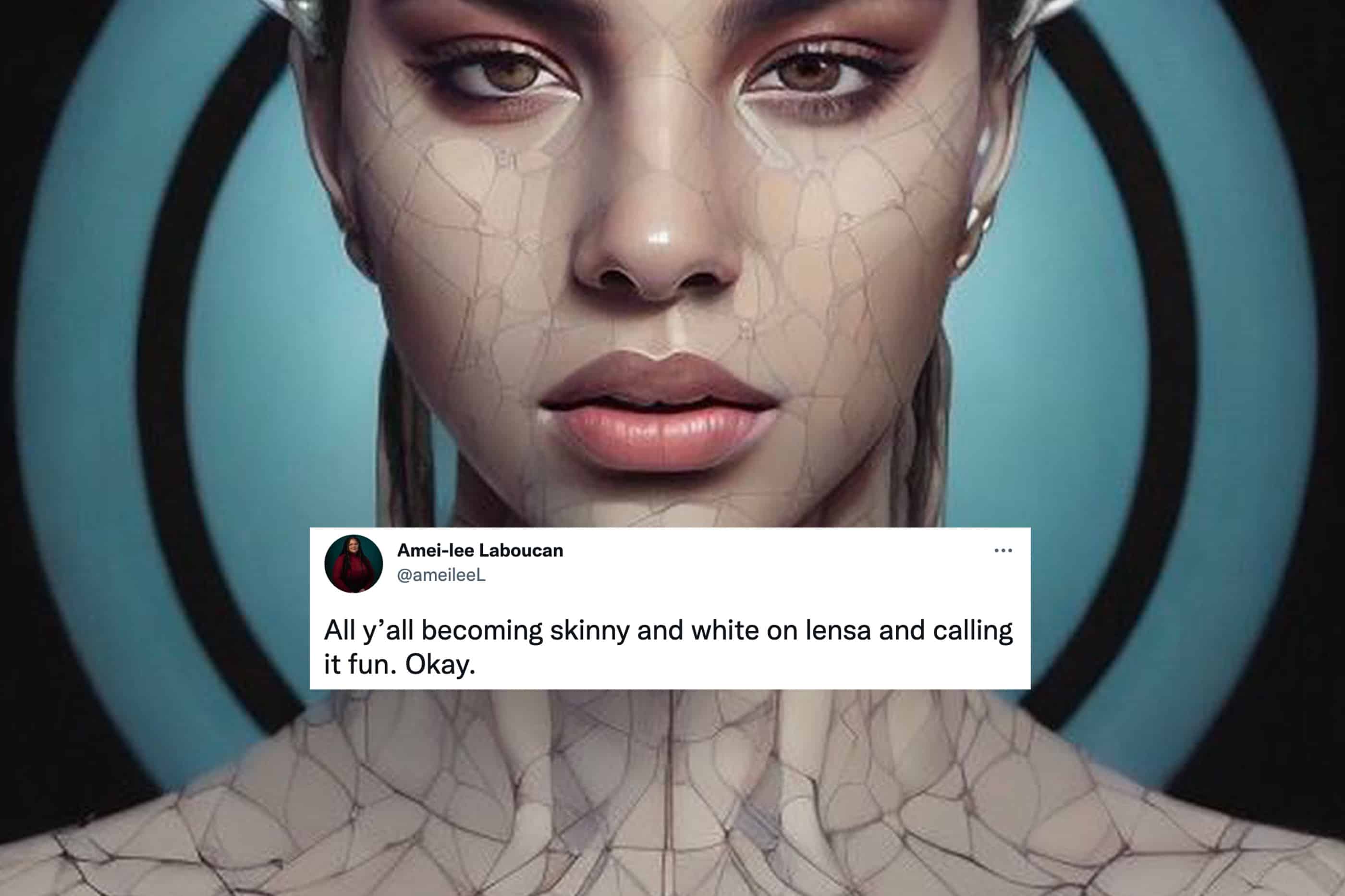
Is reality not giving as it should? Ever wondered what you'd look like as an elf or a fairy or as someone with red hair? AI art allows us to lean into fantasy. To imagine ourselves as an avatar from some parallel universe, or simply check out if we'd suit bleached brows or a pixie cut.
We're currently seeing this play out on social media, with friends dropping carousels of their face morphed into painterly portraits of characters pulled straight from science fiction, or in some cases, the friendship circle of Miquela Sousa.
The app responsible for this break from reality is Lensa AI, although there are plenty others like it. It first came onto the scene in 2018, however after Lensa AI recently added a new "Magic Avatars" feature that utilises the open source, free tool Stable Diffusion, we've witnessed a surge in user uptake. Just sign up for a "free trial" (you have to pay $3.99 to use the feature), take a handful of selfies and Lensa will pump out a series of stylised portraits, ready for you to upload across your socials. Sounds simple enough.
The immediate response has been relatively positive; it's made hot people hotter and for trans and gender diverse users, it has the power to stimulate gender euphoria.
But as with most AI related things, apps like Lensa come with a warning. While anyone in the field will tell you the technology has come a long way, there is also a lengthy road ahead, and its potential still needs to be fine-tuned. The human aspect of AI means the technology holds all the same biases we do. As it's people who create the training data for machine learning to take place, Lensa's results reflect our white, patriarchal world back at us.
Across Twitter those who have tested out Lensa have pointed out the way it adheres to traditional beauty standards when generating these portraits. Some have noted the app has misrepresented their weight, slimming them down in the final avatars. Others have called attention to the way Lensa has lightened the skin of POC too, reminding us that technology is never neutral.
so i paid for the extra lensa features to do the avatar thing..why are 90% of the pics them making me look like a white lady? pic.twitter.com/jzr5wrkBXA
— old soul (@shannonmichele_) December 2, 2022
Meanwhile, there's been talk of the way women who participate receive overly sexualised portraits in comparison to male users.
There are other concerns too. To use Lensa, the terms and conditions state that they can do as they please with the resulting images. The use of Stable Diffusion has been called into question as well, firstly because the technology is free to use. So Lensa is basically acting as middleman, taking advantage of our desire for convenience to capitalise off a tool that's accessible to anyone with enough processing power. And while that may not sound the alarms for some, there is a question of ethics when it comes to where Stable Diffusion sources its images from.
Stable Diffusion was originally trained off a huge cross section of images across the internet, 2.3 billion to be exact, and this included a swathe of pictures from Pinterest, from social media, from copyrighted sites like Getty, and a whole host of watermarked photos including artworks. Artists were not given the opportunity to opt out of this part of the learning phase, and a lot of the Magic Avatars churned out by Lensa have ripped off their work, with some signatures still visible across the images people have uploaded.
It's not the first time new modes of art have generated backlash, we saw it with the advent of photography and more recently with NFTs. But the case against apps like Lensa is not one against artificial intelligence altogether, but one that campaigns for tighter regulations and more mindfulness with how it is interpreted. For now it's a lot to process. Who said our current reality is boring?
Image: @lensa.ai



